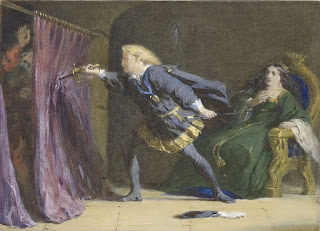Spotting the errors in any competitive exam, is very important for scoring marks. Here, I write 15 most important errors that can be asked in exams like SSC, Bank, NVS, KVS, NDA, CDS, TGT, PGT and more. So find out how many can you spot.
Answers and solution are given below in the end. Blog by
Zuba'r Saifi.
1. Not only he has invested (a)/ in share market (b)/ but also in various policies. (c)/ No error
2. I will make the payment (a)/ either in cash (b)/ else through Cheque. (c)/ No error
3. Although Ruby (a)/ was a poor farmer (b)/ yet he was happy in his life. (c)/ No error
4. Both Rakesh as well as (a)/ his cousin took part (b)/ in the marathon conducted in Mumbai few days back. (c)/ No error
5. I wonder (a)/ that government will (b)/ approve my project or not. (c)/ No error
6. Rita is (a)/ so beautiful as (b) her mother. (c)/ No error
7. Hardly did (a)/ I reached the platform (b)/ when the train left. (c)/ No error
8. Scarcely had (a)/ I left my house (b)/ then it started to rain. (c)/ No error
9. Seldom or ever (a)/ he has reached office (b)/ on time despite many warnings. (c)/ No error
10. I would rather (a)/ stay at home instead of (b)/ going out with him. (c)/ No error
11. This is the same boy (a)/ who assaulted me (b)/ in the canteen few days back. (c)/ No error
12. I told him (a)/ to wait there until (b)/ I did not return. (c)/ No error
13. Because Rohit was drinking (a)/ in a public area, (b)/ therefore, he was arrested. (c)/ No error
14. The captain asked the player (a)/ to play well lest (b)/ they would lose the game. (c)/ No error
15. No sooner did the man (a)/ fire the gunshot than (b)/ all the participant began to run. (c)/ No error
Answers With Solution
1. Solution: Error is in part (a) of the sentence. The use of ‘not only’ with the subject ‘he’ is incorrect and should be used before ‘share market’. It is because here, the use of “not only…. but also’ is to combine the objects which are ‘share market’ and ‘various policies’. Let’s take another example to understand it better:
The company is going (a)/ not only to sell its products on outlets (b)/ but also on its website. (c)/ No error
The above sentence must use ‘to sell its products not only on outlets’. It is because ‘to sell’ has two objects, i.e. ‘outlets’ and ‘its website’ which are to be added by ‘not only……but also’. So, ‘not only’ must be used before ‘outlets’ in part (b) of the sentence.
2. Solution: The error is in part (c) of the sentence. It is because ‘either’ is always followed by ‘or’. So, the word ‘else’ should be replaced by ‘or’.
3. Solution: The sentence is correct. ‘Although’ and ‘though’ are followed by ‘yet’. In writing English, ‘yet’ is also not used in the sentences and a comma (‘) is used instead. In SSC exams, problem is given by using the words ‘but, else, or, and’ instead of ‘yet’.
4. Solution: The error is in part (a) of the sentence. ‘Both’ is always followed by ‘and’. The problem is given by using ‘as well as’ or ‘else’ in sentences.
5. Solution: The error is in part (b) of the sentence. The correct pairing is “whether….or”. So, the use of “that” is incorrect in part (b) of the sentence and must be replaced by “whether”.
6. Solution: The error is in part (b) of the sentence. The correct pairing is “so….as” and “as….as”. However, “so….as” is always used in negative sentences. The use of “so” is incorrect in part (b) of the sentence and must be replaced by “as”. See some examples:
He cannot run so fast as you. (Negative sentence)
Rohit is not so stupid as he acts. (Negative sentence)
People are not so bad as you think them of. (Negative sentence)
7. Solution: The error is in part (a) of the sentence. “Hardly” and “scarcely” are followed by the auxiliary verb “had” and not “did”.
8. Solution: The error is in part (c) of the sentence. “Scarcely/hardly” are always followed by “when”. The problem is given in exams by using “then/than/that” in sentences.
9. Solution: The error is in part (a) of the sentence. The correct pairing is “seldom or never” and “seldom if ever”. See some examples:
Seldom if ever I’ve not practiced yoga.
Seldom or never I’ve hurt him.
10. Solution: The error is in part (b) of the sentence. “Rather” is always followed by “than”. The sentence should read as “I would rather stay at home than going out with him.
11. Solution: The error is in part (b) of the sentence. “The same” is always followed by “that”. In exams, problem is given by using words like “who/which” instead of “that”. “As” is used in place of “that” when the verb is not given or not clear. See below example:
This is the same car as mine.
12. Solution: The error is in part (c) of the sentence. The use of “did not” is incorrect. “Until” means up to (the point in time or the event mentioned). It is a negative word; so, we should not use “not” with it. Similar is the case with “unless”.
13. Solution: The error is in part (c) of the sentence. It is incorrect to use “therefore” with “because”. It should be removed to make the sentence grammatically correct.
14. Solution: The error is in part (c) of the sentence. “Lest” is followed by “should” and not “would” as given in the sentence.
15. Solution: The sentence is correct. If the second event occurs immediately after the first, we can express that idea using the below structures:
- No sooner... than
- Hardly... when
- Scarcely ... when
With "hardly/scarcely", we always use past perfect tense. See below examples:
Hardly had I reached the station when the train came.
Scarcely had I reached the station when the train arrived.
However, with "no sooner", we can use the verb "had" as well as "did". See below examples:
No sooner had I closed my eyes than I fell asleep.
No sooner did I arrive at the station than the train came.








Comments